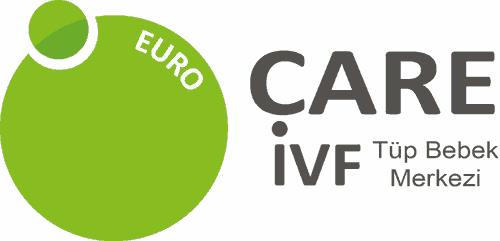
Getting pregnant can be a challenging process for many couples, but one that can be accomplished with the right education and guidance. If you are struggling to get pregnant, you’re not alone: About 15% of couples seek medical help to have a baby.
Here we’ll guide you through the treatment options and where to go for support after trying to conceive for more than a year.
A closer look at conception
Conception refers to the fertilization of an ovulated egg with sperm. Though sexual intercourse is at the core of conception, success is influenced by well-synchronized hormonal interactions that control:
- Ovulation (egg release)
- Endometrial thickening
- Embryo implantation
When trying to conceive, timing is vital. Knowing your ovulation pattern can greatly increase your chances of pregnancy. It can also help you detect reproductive issues that cause infertility.
Early signs of infertility
The first sign of infertility is the inability to achieve pregnancy after one year of trying. For women under 35, this period is limited to six months.
Sometimes women may experience early warning signs of infertility, or symptoms may be absent. That being said, any concerns related to your reproductive health should be addressed only by an experienced medical professional.
Signs of infertility in women
Some symptoms of infertility could be hormone-related, such as:
- Irregular/absent periods
- Heavy, painful periods
- Mood swings
- Low sex drive
- Unexplained weight loss/gain
- Patchy hair loss on the scalp
- Facial hair
In other cases (e.g. tubal factor infertility, unexplained infertility), women may not experience any symptoms except for their inability to conceive naturally.
Signs of infertility in men
Symptoms of male infertility include:
- Low sex drive
- Ejaculation problems
- Low facial and body hair
- Firm/enlarged testicles
Similarly to women, men rarely have any health-related symptoms showing that they are at risk of infertility.
Most common causes of infertility
In 30% of couples who struggle with infertility, the problem lies with the female partner. Male issues are responsible for about 30% of infertility cases. The remaining percentage is caused by a combination of male and female factors or unknown reasons (unexplained infertility).
Common causes of female infertility
- Ovulatory disorders (e.g. polycystic ovary syndrome, abnormal ovulation)
- Structural abnormalities (e.g. blocked fallopian tubes, polyps, uterine fibroids)
- Early menopause
- Endometriosis
Common causes of male infertility
- Anatomical abnormalities (e.g. erectile dysfunction, varicocele, ejaculatory duct obstruction)
- Hormone imbalances (e.g. hyperprolactinemia, hypothyroidism)
Causes of infertility in both sexes
- Genetic conditions (e.g. Fragile X syndrome, Kartagener’s syndrome, myotonic dystrophy)
- Immune disorders (such as anti-sperm antibodies, autoimmune thyroiditis, celiac disease)
- Cancer and cancer treatment (e.g. chemotherapy, radiotherapy)
- Sexually transmitted diseases (e.g. chlamydia, gonorrhoea)
- Pre-existing health conditions (such as diabetes, anemia, high blood pressure)
Lifestyle risk factors
Unhealthy lifestyle habits can negatively affect male and female fertility. Modifiable lifestyle factors that can harm your fertility include:
- Smoking
- Immoderate alcohol consumption
- Excessive caffeine intake
- Recreational drugs
- Poor nutrition/unhealthy eating habits
- Insufficient exercise/sleep
- Unhealthy weight (BMI 18.5-24.9)
- Psychological stress
- Environmental exposure to toxins
Age: the major driver of fertility decline
Age is the primary factor for declining fertility in women. This results from the gradual but steady decline of the number of ovarian follicles in a woman’s ovaries.
Men are also more prone to experiencing fertility problems after the age of 40 (e.g. low sperm count, poor sperm motility, erectile dysfunction).
Age-related fertility decline is reflected through lower pregnancy rates among couples who wait longer to have children. In addition, there is a higher risk of miscarriage and health complications for both the mother and babies. Despite these age-related risks, many couples conceive with success.
How to check your fertility?
If you want to build a family now or in the future, it’s best to learn as much as possible about your fertility. Start by testing your hormone levels, which will give you insights into your egg supply and hormonal status. Men can also check their sperm health using a sperm analysis test.
Together with your doctor, review your test results and discuss the most suitable methods of family building or fertility preservation.
Steps to take if you can’t get pregnant after a year
After trying to conceive for more than a year, reaching out to a fertility specialist is the first step. Through proper evaluation, education and support, you can get a solid plan for your future.
Investigate your case thoroughly
Your physician will guide you through extensive physical, medical and genetic testing to get a clear picture of your medical situation.
Fertility testing for women
- Hormone tests (e.g. anti-mullerian hormone, estradiol, follicle-stimulating hormone)
- Ovulation test (e.g. progesterone, luteinizing hormone)
- Ultrasound scan (for the assessment of the uterus, ovaries and fallopian tubes)
- Infectious disease screening (e.g. chlamydia, cytomegalovirus, gonorrhoea, hepatitis B/C)
Fertility testing for men
- Semen analysis
- Male hormone profiling (e.g. testosterone, luteinizing hormone, follicle-stimulating hormone, prolactin)
- Ultrasound imaging (testicular and prostate abnormalities)
- Testicular biopsy (sperm production abnormalities)
Seek emotional support
Infertility is an emotional process which may cause significant psychological distress. Having the right support can significantly improve your experience towards conception.
Online blogs, forums and online specialist consultations are a great way to get active support on your journey to parenthood. Psychological support in the form of counselling is also available to individuals experiencing infertility problems.
Explore treatment options
Before you decide, explore all available options for alternative family building. Speak with our euroCARE IVF experienced fertility doctor to get advice on the most suitable treatment for you. Together with your doctor, review the short-term and long-term factors, as well as the emotional and relationship aspects associated with each choice.
Plan your finances in advance
Treating infertility can be financially demanding. In many countries, fertility coverage is not provided or it doesn’t cover all treatment costs. Learning about the costs and planning your finances in advance can make the treatment process less stressful.
Getting treatment after trying to conceive for over a year
From the vast array of options available today, there is a treatment appropriate for each infertility case.
Based on the results of the infertility evaluation, the euroCARE IVF doctor will create a treatment plan tailored to your specific needs.
Fertility drugs
Medications for women
Common fertility drugs used to achieve pregnancy include:
- Follicle-stimulating hormone (FSH) drugs
- Clomiphene
- Human chorionic gonadotropin (hCG) injections
There may be other fertility medications your doctor will prescribe depending on your medical situation.
Medications for men
Male factor infertility with underlying hormonal problems can be treated using the following fertility drugs:
- Clomiphene
- Human chorionic gonadotropin (hCG) injections
- Human menopausal gonadotropins (hMG) injections
Other fertility drugs may be recommended depending on your diagnosis.
Surgery
Reproductive surgery for female infertility
Surgical interventions are used to correct anatomical abnormalities that interfere with a woman’s fertility, such as:
- Laparoscopy (e.g. uterine fibroids, endometriosis lesions, ovarian cysts)
- Hysteroscopy (e.g. fibroids, adhesions, septums)
- Tubal surgery (e.g. blocked fallopian tubes)
Reproductive surgery for male infertility
In some instances, surgical treatments are recommended to correct anatomical problems in men or reverse infertility. These may include:
- Varicocelectomy (e.g. varicoceles)
- Vasovasostomy (e.g. vas deferens reversal)
Assisted reproductive technology (ART)
Assisted reproductive technology refers to the treatments that assist with conception.
Intrauterine Insemination (IUI)
Intrauterine insemination (IUI) involves monitoring of the ovaries to detect ovulation. When egg(s) become fully mature, pre-washed sperm is injected into the uterus through a catheter. The fastest sperm will fertilize the egg. If IUI is unsuccessful or it’s not suitable for you, your doctor will recommend in vitro fertilization.
In vitro fertilisation (IVF)
IVF is a multi-step assisted reproductive procedure that facilitates conception by promoting multiple egg growth and fertilization with male sperm outside the female body (in vitro).
Two to five days post-retrieval, fertilized eggs (embryos) are implanted into the woman’s uterus to attempt pregnancy. If pregnancy doesn’t occur, your doctor may recommend another round of IVF.
Intracytoplasmic sperm injection (ICSI)
The ICSI technique involves injecting a healthy sperm cell directly into the mature egg to accomplish fertilization. At the euroCARE IVF center, this method is used in all IVF procedures, especially in the following cases:
- Poor semen quality
- Low sperm count (oligospermia)
- Multiple unsuccessful IVF cycles
Third-party reproduction
Third-party assisted reproduction is when another person – other than the one(s) planning to start a family – is involved in the reproductive process. These are some of the options to consider:
Thanks to the use of high-quality eggs, sperm or embryos, third-party assisted reproduction techniques are the most successful methods of overcoming obstacles to pregnancy.
Maximize your chances for treatment success
Here are a few simple ways to promote reproductive health and increase the chances of treatment success:
- Eat a balanced diet rich in vitamins, minerals and antioxidants
- Maintain/achieve a healthy body weight
- Get regular exercise (e.g. walking, jogging, hiking, dancing)
- Practice relaxation techniques (such as yoga, meditation, guided visualisation, deep breathing)
- Try acupuncture
Find the right clinic to help you navigate your fertility journey!
Conception can be a challenging emotional journey for many women and couples alike. However, several treatment options are available to help you achieve your family goals.
Your treatment success greatly depends on the expertise of your fertility clinic, so make sure you choose the best one. With euroCARE IVF you can get full support, guidance and education to help you make well-informed decisions. To get full details and further guidance on your journey to parenthood, schedule a free video fertility consultation now!
